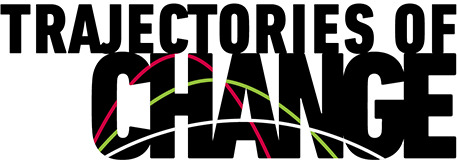FELLOWS 2014
EYLAF BADER EDDIN
University of Aix-en-Provence/Philipps-University Marburg
Bucerius Pre-Doctoral Grant
Translating the Language of the Syrian Revolution (2011/12)
ABSTRACT
While the Syrian revolution has obviously provoked significant social and political changes, the far-reaching consequences of its cultural and discursive transformations have yet to be seen. For activists, academics and journalists, however, it was initially a revolution of the language, destroying the symbolic oppression and torpidity of the old regime and creating a new language that enabled them to defy, inform, narrate and translate the ongoing events and transformations. This language was created in the first place to defy, subvert and challenge the regime and its discourse. The language of the Syrian revolution embodies not only the revolutionary context of the protests but the long history of the regime’s symbolic violence Thus, language is approached philologically and linguistically, along with being considered cultural capital in sociological terms. This approach highlights language as primarily a political product: language used in a revolution but also language as a revolution and a weapon deployed by both sides. This raises many questions with regard to language: How can language be a historical, political, cultural, economic, and social indicator of transformations in a society? What is the relationship between symbolic violence, different types of symbolic capital and their consumption in different settings, and dominant and dominated discourses in language and practices? What is the value of a language through its performativity and its impact on the receiver? The main research question is how the revolutionary language was transferred into the English-speaking market. Along with tracing the act of translating, I raise the question of the importance of the language and its performativity in discursively explaining the profound histories of Syrians, including the symbolic domination of the regime and its subversion by regime opponents who opposed the regime more explicitly in 2011. The positionality of translation, through its actors, settings, and locations, helps us to understand the modes of reception of the translation. Moreover, it sheds light on the translation’s interaction with its mechanisms and the transformation processes that differ when the translation production chain is changed.
BIOGRAPHY
Eylaf Bader Eddin is a Post-doc candidate in Arabic and Cultural Studies in University of Marburg working on “Singing Power(s): Authoritarianism, Nationalism, and Patriotic Music in Syria (1970–2015)”. In his current research, Bader Eddin seeks to analyze singing as an act of controlling but also emancipating from or to a dominant or dominated discourse(s). His Ph.D. research (Universities of Aix-Marseille and Marburg) on “Translating the Language of the Syrian Revolution 2011” focused on translation and the language of protests as well as on revolutionary archives and performance. His latest publication is a chapter entitled “Translating the Mourning Walls: Aleppo’s Last Words” in the Routledge Handbook of Translation and Activism (2020). He is the author of “When they Cried ‘Forever’: The Language of the Syrian Revolution” (in Arabic) published after receiving Sadiq Jalal al-Azim Cultural Award in 2018.
PUBLICATION
"Translating Mourning Walls: Aleppo’s Last Words" in The Routledge Handbook of Translation and Activism 2020.
https://www.taylorfrancis.com/books/e/9781315149660/chapters/10.4324/9781315149660-9
back to list FELLOWS 2014


